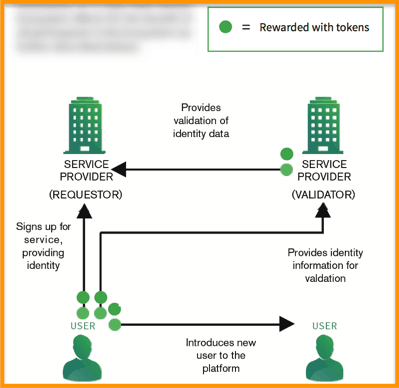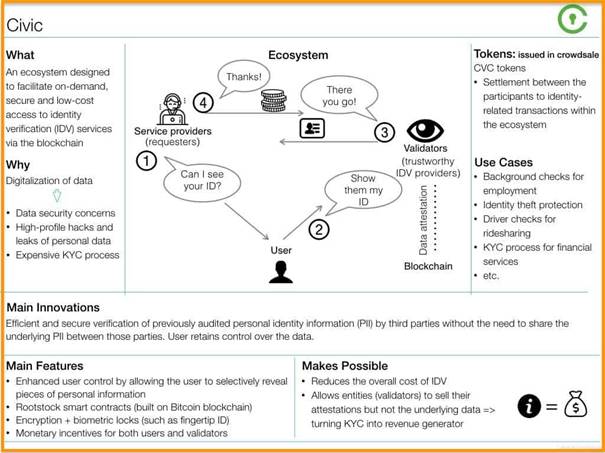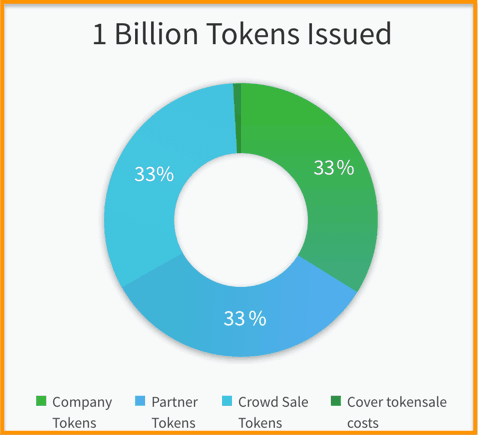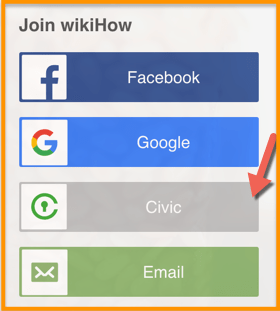
Blockchain technology and blockchain based tokens are increasing their share of the global financial markets. Blockchain-based tokens are taking over the world at a pace hardly imagined by many, and altogether, they are worth a few hundred billion dollars. Without a doubt, 2017 was the year of cryptocurrency mania and this year saw an unprecedented proliferation of tokens based on the blockchain technology to solve many nooks and corners of various industries.
Many blockchain based start-ups launched their ICOs and raised significant funds. However, the more blockchain-based start-ups there are, the more difficult it can be to separate out the ones that truly stand out. Some of these ICOs gave great short-term returns, but around 95% of all new blockchain-based start-ups fail and the investors will not be able to realize the profits they are expecting. However, I believe there are some great start-ups that are expected to live and thrive because they have the teams, investors, and infrastructures to ensure their success.
In today’s article, I am going to do a fundamental analysis of one such blockchain based start-up – CIVIC (aka CVC). This start-up had a decent ICO in 2017 and is expected to thrive in future.
What you'll learn 👉
What is CIVIC (CVC)?
CIVIC is a decentralized identity management service that runs on Ethereum’s blockchain and allows one to protect and authorize the use of their identity in real-time.
In simple words, every time when you are required to prove that you are who you say you are for a variety of reasons: writing a check, using a debt or credit card, opening an account, enrolling in school, applying for loans, applying for government benefits, etc., you need to undergo the same verification and document submission process repeatedly from scratch.
CIVIC’s goal is to introduce on-demand, secure and low-cost access to Identity Verification Services (IDV) via blockchain, which removes the need for background and personal information verification checks that are undertaken every time a new institution requires one.
In other words, using CIVIC infrastructure enables you to use your once verified data to be reused in places where CIVIC is accepted, which means that you don’t have to undergo the same verification and document submission process from the scratch. This is called your CIVIC ID.
That is the basic premise of CIVIC. However, there are many more use cases that I will discuss further in this article. Here’s an introductory video for those who want a more in-depth insight on the project.
What Is CVC Token?
CVC is the native token of the CIVIC infrastructure whose ICO was launched on 22 June, 2017. CVC is an ERC-20 token that lives on Ethereum’s blockchain.
CVC is a pretty solid digital coin, and the way Civic’s business model is defined naturally calls of a valued-token which can be exchanged when required.
Generally speaking, there will primarily be three entities for this use-case:
- Identity Requestors – Those who request to verify the user’s identity.
- Identity Validators – Those who validate the identity.
- Users – Those whose identity requestor want to verify.

Let say user ‘X’ passes on his/her PII (personal identity information like name, address, SNN number etc.) for initial validation to a validator through the CIVIC app.
Now, the validator who, in case you wonder, is a trusted party — such as a bank, credit union or government body — and has it in their interest to verify the user, verifies the PII via its standard verification procedure and stores the hashes of the data in the blockchain. This data is stringently verified by Civic or identity verifying partners. After that, it is anchored to the blockchain in the form of un-decryptable data, and from there the requestor, who now need not do the whole cumbersome process of verification of user’s PII, can purchase the verified personal information of the user, presuming that the user gives his/her consent. Validators and users are rewarded with CIVIC tokens for their efforts.
Also, it makes a life lot easier for you because this way, you need not give your data repeatedly to various entities. Civic makes it easy and truly frictionless for identity requestors and users to verify data and prevent identity theft at the same time. The reason for that is that there is no actual data stored but only the hashes of the verified data on the blockchain.
In addition, CIVIC enables creation of a marketplace of verifiable and attested data which can be purchased and sold in a free-market economy, but unlike that’s the case today, with user’s consent.
However, there are also other scenarios that can happen. For instance, an organization can reward/incentivize users for their efforts (with CVC tokens) to share their data with them for verification and anchoring their data on the blockchain. These data can later be sold to a requestor in exchange of CVC tokens with the consent of the user.
Here’s a borrowed infographic of Civic infrastructure which will make it easier for you to understand how Civic works.

The CIVIC Team
The CIVIC founding team is highly experienced and boast decades of experience in leadership and entrepreneurship.
Vinny Lingham, reality TV star of Shark Tank South Africa and serial internet entrepreneur, is co-founder and CEO of Civic. Vinny is still early in his career at 38 years old, yet has a track record of building profitable businesses which scaled quickly. Also, many investments he’s made in the blockchain space could utilize Civic, making all of Vinny’s investments the perfect integration partners. He is a current board member of The Bitcoin Foundation, and successfully exited from Gyft in 2014 for more than $54 million dollars.
Other influential names that are tied to this project and backing the technology are:
- Jonathan Smith – CTO Of CIVIC
- Matt Roszak – Co-founder and Chairman of Bloq
- Anthony Di Iorio – CEO & Founder at Jaxx and Decentral & Founder at Ethereum
- Jeff Garzik – Co-founder and CEO of Bloq

Click here to find out more about other notable technical advisors in the Civic team.
CIVIC ICO

CIVIC ICO or Initial Coin Offering went fast and furious. CIVIC’s ICO ended in June 2017 and gathered up around $33 million in funds to support the project, stored in Bitcoin and Ethereum. CIVIC sold out fast, to around 40,000 buyers, with very few “whales,” and a queue distribution system.
CVC will have a limited supply of 1 billion tokens, of which one third was sold in the company’s initial coin offering (ICO), and another third was retained by Civic. The remaining third is allocated for distribution to incentivize participation in the ecosystem, with the leftover one percent being used to cover token sale costs.
At the moment a single Civic token is going at the point of $0.233543 USD at CoinMarketCap, and the total circulating supply of Civic is 342,699,966 CVC. That makes its market cap approximately $80.035.178 USD.
How To Buy and Store CIVIC Cryptocurrency?
CVC is relatively new cryptocurrency, so it is not available on all of the popular crypto exchanges. Still, there are enough crypto exchanges that provide decent liquidity while purchasing and selling it:
- Livecoin
- Poloniex
- KuCoin
- Bittrex
- Gate.io
- AEX
- BigONE
- Radar Relay
- Upbit
- Liqui
- Mercatox
- OKEx
- HitBTC
- Huobi
- IDEX
- GOPAX
- Coindirect
- COSS
- EtherDelta
- ChaoEX
- Cobinhood
Note: More than 80% of the trading for Civic happens on Bittrex.
In order to get some CVC tokens, it’s highly recommended to use your Bitcoin and Ethereum tokens, as purchasing CVC tokens in fiat currencies such as USD, EUR, or GBP is currently quite difficult.
However, to own the CVC token, the user has to first set up a Civic wallet. Not many wallet options are available for CVC, but there are sufficient wallet options to keep your coins safe:
- Hardware Wallet: Trezor, Ledger Blue, Ledger Nano S
- Desktop Wallets: MyEtherWallet, Jaxx (Windows, Linux, Mac)
- Browser/Web Wallets: Jaxx (Chrome Extension)
- Mobile Wallets: Jaxx (Android, iOS), Coinomi (Android)
What Is CIVIC Token Used for?
CIVIC’s main goal is to provide low-cost, universal identity theft protection on a global scale, but its use-cases are quite broad because they are creating something like a free market for identity verification in which the verifier and the user will be fairly incentivized by the requestor. In addition to verifying user identities, CIVIC ID creation could also be used for other purposes, some of which are:
- E-Signature – CIVIC offers better user experience with more options to establish various levels of trust in the identity of a person who signs a document.
- To share PHI (Personal Health Information) and PII (Personal Identity Information) with relevant parties and users can get incentivized.
- To provide financial services and keep a credit history of verified users using multi-factor authentication with simple user experience for the end user.
- It can be used on E-commerce websites to reduce the impact of a data breach by not storing user PII along with credit card data in order to avoid identity fraud.
- Secure account creation on many websites that offers varying levels of privacy to your users, including anonymity or verified demographic attributes, For example, wikiHow is using CIVIC IDs for login and registration.

In this way, one can avoid identity theft of one’s data which is the most common form of data stolen. It is estimated that in 2016 alone, almost 1.1 billion identities were stolen all around the world. In the U.S. alone, 15.4 million adults in were victims of identity fraud resulting in a loss of $16 billion.
Given this is a real problem, that won’t disappear anytime soon, I think Civic is really on to something here because the best way to keep any data secure is either not collect it at all or make it so distributed and censorship-resistant that it can’t be hacked or forged.
And this is exactly what Civic is doing. It solves identification problems using a blockchain-based solution to secure and protect identities and creates a marketplace of IDV-identity verification backed by the security of Ethereum’s blockchain.
One more thing worth noting is that Civic also provides identity theft protection in the form of:
Conclusion
CIVIC has only recently appeared in the top 100 most valuable coins list, so it still isn’t very widely known. If Civic can really back up its claims, we will likely see a large adopted by more and more entities. It also boasts strong leadership with CEO, Vinny Lingham, a business development beast, at the helm.
For now, Civic remains relatively small and CVC tokens are still cheap and haven’t really taken off after its launch. It may be a while before they have the integration partners and customer to fully realize their vision. However, there is definitely a lot of potential here. But this not an investment advice. Make sure to do your own due diligence and you should be able to make a decision. Also, never invest funds you are not ready to lose due to market volatility or technical problems.
Useful Links






